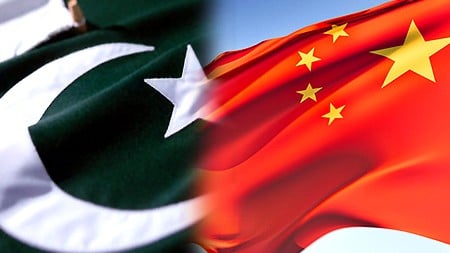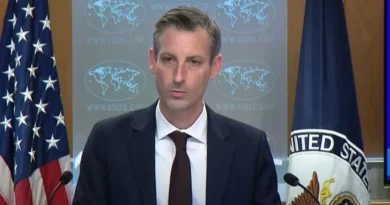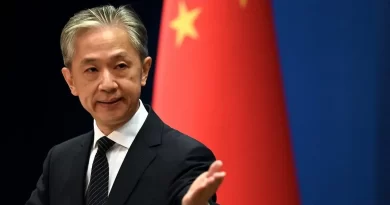Explained: How China, UAE are helping Pakistan tide over its economic crisis
Looking for ways to overcome the current economic crisis, Pakistan can consider providing minority shares in companies owned by the public to the United Arab Emirates at a negotiated price, according to the Pakistan Newspaper The Express Tribune.
China, another Pakistani ally, has also moved to help the country with a loan of $ 2.3 billion.
The Minister of Finance and Federal Revenue of Pakistan, Miftah Ismail, tweet about the Chinese consortium loan given to the Pakistan Negara Bank on June 24.
Because Pakistani’s economic conditions have worsened over the past few years with foreign exchange reserves, have switched to various types of loan offers. Sumber told The Express Tribune that this time, the UAE did not want to give $ 2 billion, after Pakistan failed to pay back the loan received in February 2019 from the same amount.
The Express Tribune quoted sources that said the UAE government had offered to acquire 10 to 12 percent of shares in government -owned companies in Pakistan through sovereign wealth funds.
“There is a proposal from a friendly country to buy Pakistani company shares based on repurchase, which means buying securities based on safe loans,” said Finance Minister Miftah Ismail when talking to Express Tribune. This means that Pakistan wants to buy back his bets in his companies after a certain period.
Meanwhile, China has also offered a loan to Pakistan in the past as in March 2019, he gave a loan of $ 2.1 billion to South Asia. It was reported that in the same year the country each received $ 1 billion from Saudi Arabia and UAE, as part of the bailout package given by two bay countries. Saudi Arabia loans are part of the $ 6 billion bailout package, which was agreed in 2018.
Apart from its traditional allies, Pakistan has reached countries that have provided loans in the past for temporary assistance. On June 27, the country’s economic affairs division tweeted had signed the “Debt Service Suspension Agreement with the French Republic” so that a loan of $ 107 million will be suspended. The number previously paid between July and December 2021 will now be paid back for six years (including a one-year grace period) in semi-shake installments.
Likewise, in April 2021 considering the Covid-19 crisis, Japan agreed to suspend $ 370 million loans to Pakistan, Reporting Express Tribune.
Has the IMF offered help?
At present, Pakistan asks for a bailout from the IMF but has not received confirmation for that. The Express Tribune reported on June 29 that the IMF had set four “difficult conditions that were difficult” which included an increase in electricity tariffs, and forced the oil levy of RS 50/Liter. Although this is not part of the previous condition, the IMF has also asked the anti-corruption agency established to investigate government corruption.
After this is finished, the IMF will provide a request for Pakistan for approval to its executive council. In the end, approval can help the country get a loan of USD 2 billion.
Why is wrong with Pakistan’s economy?
In recent years, due to several factors, Pakistan has seen economic problems worsening inflation and depletion of foreign exchange reserves. According to the Prospects of the World Bank for the country starting April this year, this is due to “long -standing economic structural weaknesses and low productivity growth”.
“The external environment that is less conducive to exports” also contributes to the highest trade deficit, weighing Pakistan rupees.
This is not the first time this country has seen a financial crisis. However, this time the international organization did not lend to the country with the same requirements as before, except for China. Chinese investment in Pakistan is significant, but not limited to the Chinese Corridor of Pakistan – an infrastructure project that is part of an ambitious Chinese belt and streets.
Pakistan has experienced changes in leadership because many of this agreement is negotiated, and his economic views in the future remain uncertain. The World Bank said the prospects look good in certain areas such as rice and sugar cane agriculture, and positive growth of private consumption that were affected during the peak of Covid.
FTAF is also recently acknowledging that improvements made by Pakistan to overcome terror financing, and may be out of the gray list, have the potential to invite more investment and increase the ability to borrow from international organizations.
However, the World Bank warns that “domestically, political tension and policy slip can also cause protracted macroeconomic imbalances”.
Lack of fuel and electricity, inflation, and extending heat waves that affect agriculture, as witnessed this year in all children, are some of the main problems in the short term.




